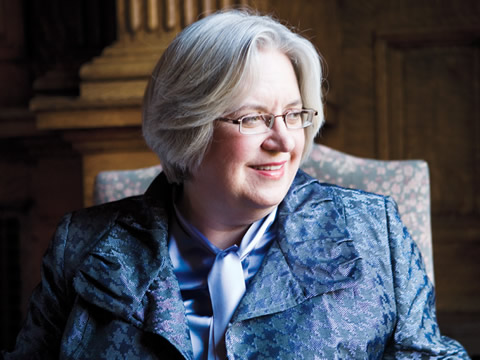In one of Maureen Walter’s favourite convocation pictures, she stands in hood and gown, proudly holding her screaming six-week-old daughter. “Two milestones in one fell swoop!” she exults.
But while Walter (MDiv 1980 Knox, JD 1992) has found both child-rearing and the practice of law to be richly rewarding, she says combining the two has been far from easy. Since the birth of her second child in 1995, the 52-year-old has worked only intermittently as a lawyer. And although her resumé is remarkably full – she’s also an active Presbyterian minister with lots of volunteer experience – recent efforts to reactivate her legal career haven’t panned out. “Years ago, if I got an interview, I was pretty certain I would get a job offer. That doesn’t seem to be the case anymore,” she sighs.
Many women such as Walter take time off to raise families and face difficulty getting back into the legal profession. Others work consistently, but still find it hard to crack the glass ceiling at bigger firms. Because of their family responsibilities, some lawyers refuse to accept the long hours these firms demand of their employees. (One recent national study showed that 75 per cent of female lawyers find it difficult to manage the work-life balance.)
Jane Kidner, assistant dean at the University of Toronto’s Faculty of Law, thinks women have options they might not be aware of. “There are many different ways to provide value as a lawyer in our society, beyond the typical model of working long hours in a large law firm,” she says. “Today, many lawyers work for the government, or as in-house counsel in many types of settings. We also have lawyers working for public interest or community organizations, as well as in clinics, tribunals and regulatory bodies.”
To highlight the legal community’s increasing flexibility, Kidner convened the Women in Transition program, an intensive two-day seminar held in mid-June. Part of the law school’s Summer Institute for Executive Legal Education, the program offered job search strategies, panel discussions and – most importantly – the chance for women to network with colleagues employed in a wide variety of legal capacities.
Among the speakers was Rubsun Ho (LLB 1995), whose firm, Cognition LLP, hires lawyers to work on short-term or part-time contracts – a potentially attractive option for mothers of young children. In May, Walter was particularly looking forward to a “speed networking” event, in which she would have the opportunity to meet lawyers from fields she has already worked in and enjoyed, such as family and administrative law.
“It will be exceptionally interesting to me just to see what’s out there,” she says. “I enjoyed law school. I put a lot of work into getting the qualifications, and I can’t help but think I could be an asset to somebody. But if I carry on as I have been, I’ll never work in law again. And that seems a shame to me.”
Read more about the Summer Institute for Executive Legal Education at the Faculty of Law and the Women in Transition program at www.law.utoronto.ca/ExecutiveEducation/Women.html.
Recent Posts
A Sentinel for Global Health
AI is promising a better – and faster – way to monitor the world for emerging medical threats
The Age of Deception
AI is generating a disinformation arms race. The window to stop it may be closing
Safety First
AI has developed faster than anyone thought. Will it serve humanity’s best interests?




